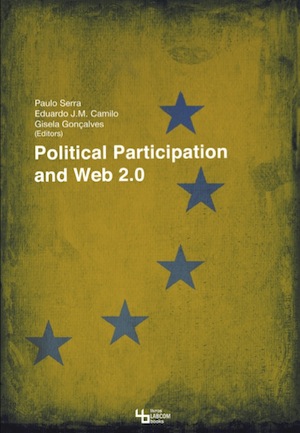Political Participation and Web 2.0
por Paulo Serra, Eduardo J. M. Camilo, Gisela Gonçalves (Editores)
Colecção: Teorias da comunicação
Ano de edição: 2014
ISBN: 978-989-654-133-0
Despite it being a debated issue in recent decades, there is in fact no consensus regarding the potentialities of the Internet for the strengthening of citizens’ political participation and – by extension – of democracy itself. Nonetheless, this “new medium”, and, in particular, its Web 2.0 version has become the cornerstone of communication strategies for both political parties and their candidates.
Several questions emerge from the debate about the impact of the internet on political participation. First of all, the very concept of political participa- tion. Despite its importance in the theory of democracy, this concept is not always easy to define with rigor particularly when it comes to the form and boundaries of such participation. Actually, the ultimate issue is whether we are currently witnessing a “crisis of participation” or quite the contrary, the rise of alternative forms thereof. Secondly, the debate about the so-called “crisis of democracy” is also central when thinking about political participa- tion in our times. Democratic societies are experiencing a democratic deficit, to a large extend a crisis of confidence in traditional political parties, by which citizens feel misrepresented and hence alienated from righteous participation in their political destiny.







